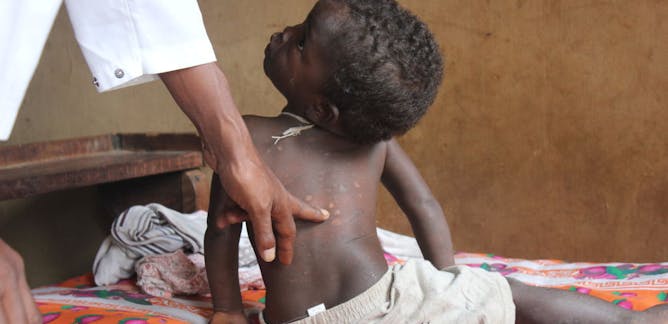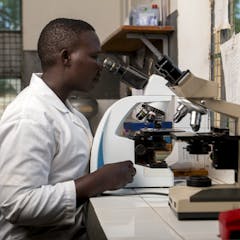
Articles on elephantiasis
Displaying all articles

Neglected tropical diseases are often associated with social exclusion as well as physical suffering. One billion people around the world suffer from these diseases.

In rural Ghana, only 18% of patients believe elephantiasis is a disease. Some others think it is caused by curses or even rain. Only by understanding local beliefs can it be treated effectively.

Neglected tropical diseases of the skin are stigmatised, and may affect an individual’s quality of life

The main sign of the illness is disfiguring swelling followed by peeling of the affected area. In women this swelling mainly affects arms and legs. In men it can cause enlargement of the scrotum.

Many of these diseases cause tremendous suffering and death – yet there’s still a lack of effective tools to diagnose, treat, and prevent them.

Although there have been global efforts to eliminate parasites, some parasites and vectors will have survived attack because they have evolved resistance.

The drug that led to two scientists wining the Nobel Prize for Physiology or medicine has made a significant difference for those suffering from elephantiasis and river blindness.
